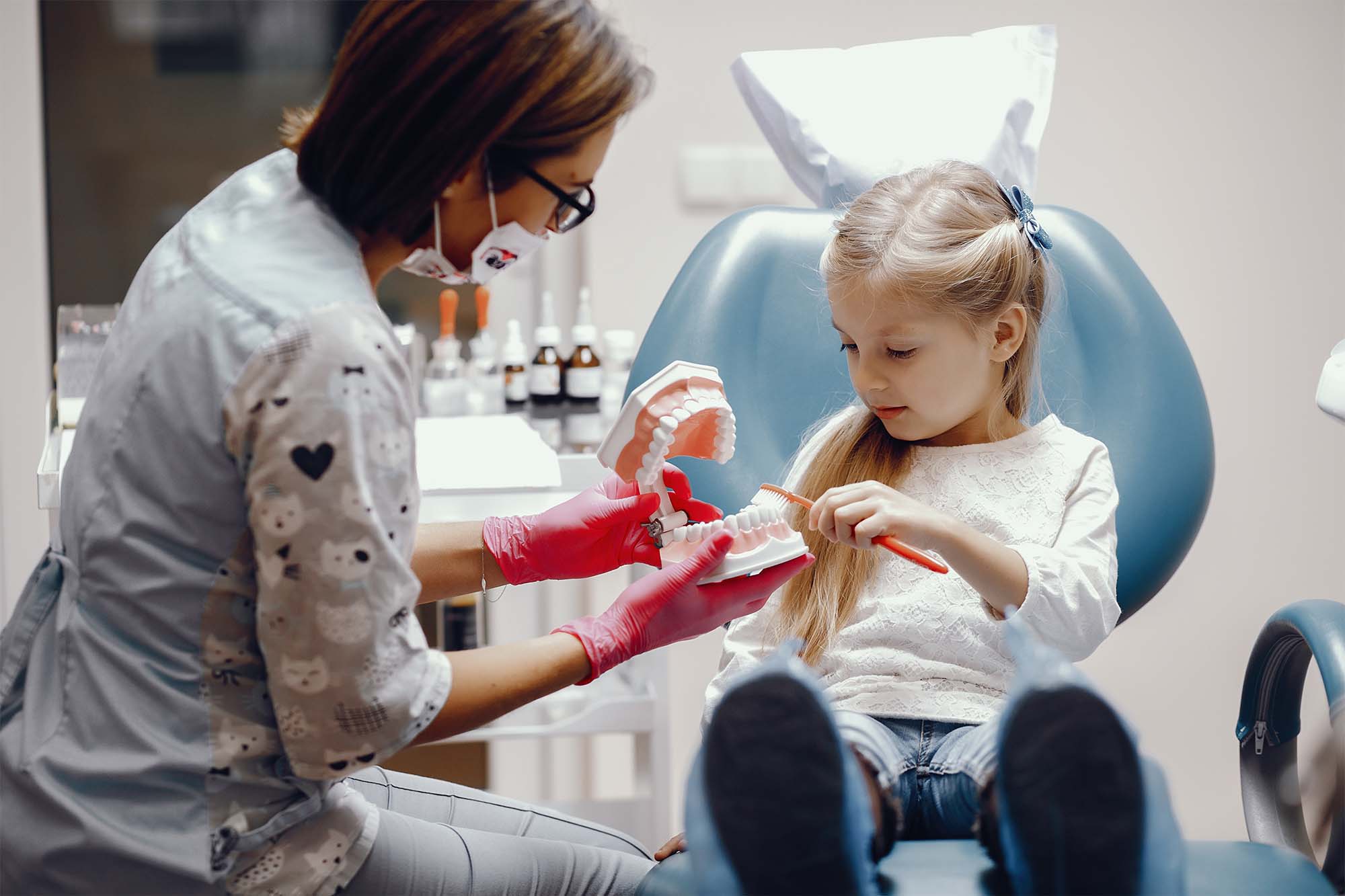
Baby teeth, also known as primary teeth, are often overlooked in terms of dental care because they are temporary. However, their role in a child's oral development is crucial, as they serve as placeholders for permanent teeth and play a significant role in a child's overall health and well-being. Visiting a family dentist ensures proper monitoring of baby teeth, helping to prevent issues that could affect future dental health. Understanding the significance of baby teeth is the first step in ensuring that children develop a strong foundation for healthy permanent teeth and a lifetime of good oral hygiene habits.
The Role of Baby Teeth
Baby teeth have several important functions:
- Speech Development: Baby teeth help children learn to pronounce sounds and words correctly.
- Chewing and Digestion: They are essential for proper chewing, which aids in digestion and nutrient absorption.
- Facial Structure Development: Baby teeth support the development of a child's jaw and facial structure.
- Space Holders: Baby teeth act as placeholders, guiding the eruption of permanent teeth in the right position.
The Timing of Baby Teeth Eruption
Understanding the typical timeline for baby teeth eruption can help parents monitor their child's dental development:
- Lower Central Incisors: Usually, the first teeth erupt, often around 6-10 months of age.
- Upper Central Incisors: These typically follow shortly after the lower central incisors.
- Lateral Incisors, Canines, and First Molars: These teeth usually appear between 9 months and 3 years of age.
- Second Molars: Typically emerge between ages 2 and 3.
- Preventing Tooth Decay: Baby teeth are susceptible to cavities, and untreated decay can lead to pain and infection.
- Oral Hygiene Habits: Teaching children proper brushing and flossing techniques from a young age establishes lifelong habits.
- Regular Dental Check-ups: Routine visits to the dentist help monitor dental development, catch issues early, and provide preventive care.
- Addressing Orthodontic Concerns: Early dental check-ups can identify potential orthodontic issues that can be addressed before they become more severe.
- Oral Hygiene from the Start (0-6 months): Before teeth erupt, clean the gums with a soft, damp cloth after feeding. Avoid putting a baby to bed with a bottle, as it can lead to tooth decay (known as "bottle rot").
- Brushing (6-12 months): Begin using a soft-bristle baby toothbrush and water to gently brush the first teeth as they emerge. Avoid toothpaste with fluoride until the child is old enough to spit it out (usually around age 2).
- Dietary Considerations (12-24 months): Limit sugary snacks and drinks. Encourage a balanced diet rich in fruits, vegetables, and dairy.
- First Dental Visit (Around 1 year): Schedule the first dental visit around the child's first birthday. It's primarily a check-up to ensure healthy dental development.
- Fluoride Toothpaste and Flossing (2-3 years): Begin using a small amount of fluoride toothpaste (pea-sized) and teach the child to spit it out. Introduce flossing when teeth touch (usually around age 2-3).
- Regular Dental Check-ups (Every 6 months): Continued with biannual dental check-ups for preventive care and monitoring.
- Tooth Decay: Baby teeth can develop cavities if oral hygiene and dietary habits are not adequate. Early treatment is crucial to prevent further decay.
- Teething Pain: Teething can be uncomfortable for infants. Parents can offer teething rings or apply a cold, damp cloth to soothe sore gums.
- Thumb-Sucking and Pacifier Use: Excessive thumb-sucking or pacifier use beyond infancy can lead to misalignment of teeth. Parents should encourage cessation at an appropriate age.
- Tooth Injury: Accidental falls or bumps can result in chipped or knocked-out baby teeth. In such cases, consult a dentist for evaluation.
- Shedding of Baby Teeth: Baby teeth usually start falling out around age 6, with the last molars typically shedding around age 12 or 13.
- Eruption of Permanent Teeth: Permanent teeth begin to replace baby teeth as they are shed. Parents should continue to emphasize good oral hygiene.
- Orthodontic Evaluation: Around age 7, children should undergo an orthodontic evaluation to assess the need for braces or other orthodontic treatments.
The Importance of Early Dental Care
Early dental care for baby teeth sets the foundation for a lifetime of good oral health. Here's why it matters:
Baby Teeth Dental Care Tips
Parents and caregivers play a crucial role in maintaining the oral health of baby teeth. Here are some dental care tips:
Common Dental Issues in Baby Teeth
Understanding common dental problems in baby teeth can help parents identify and address issues promptly:
Common Dental Issues in Baby Teeth
Baby teeth eventually fall out to make way for permanent teeth. Parents should be aware of this transition and help children maintain good oral hygiene as they grow:
Baby teeth play a vital role in a child's oral and overall development, and their care should not be underestimated. Proper dental care, including regular check-ups, healthy dietary choices, and good oral hygiene habits, from infancy to early childhood, sets the stage for a lifetime of healthy permanent teeth. Parents and caregivers should also be mindful of aesthetic concerns as children grow, as treatments like Teeth Whitening Treatment can help maintain a bright and confident smile into adulthood.
